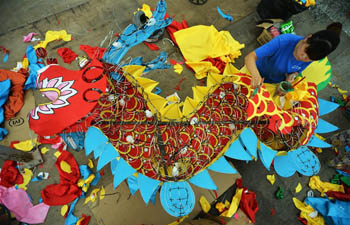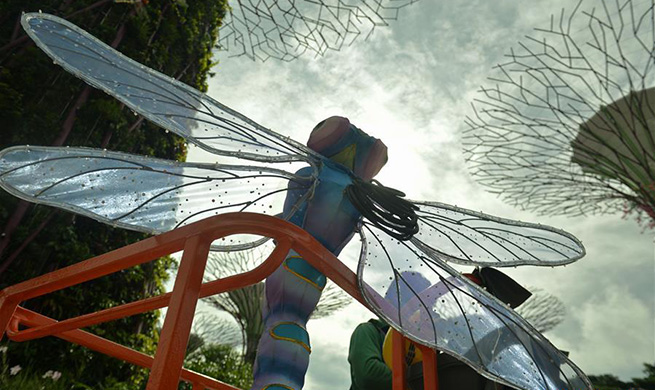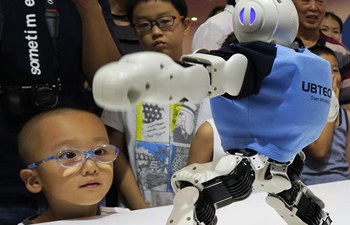PARIS, Aug. 30 (Xinhua) -- The United Nations Educational, Scientific and Cultural Organization (UNESCO) on Wednesday announced the winners of the 2017 International Literacy Prizes, which honors excellence and innovation in the field of literacy worldwide.
The awards will be handed out to five laureates from Canada, Colombia, Jordan, Pakistan and South Africa on the occasion of International Literacy Day, which falls on Sept. 8.
The prizes are divided into two categories, namely the UNESCO Confucius Prize for Literacy sponsored by China, and the UNESCO King Sejong Literacy Prize sponsored by the Republic of Korea.
This year's Confucius Prize, which rewards projects that benefit rural populations and out-of-school youth, particularly girls and women, is given to the AdulTICoProgram from Columbia, The Citizens Foundation from Pakistan, and the FunDza project from South Africa.
The King Sejong prize, dedicated to mother-tongue literacy education, is shared by the Centre for the Study of Learning and Performance from Canada and the We Love Reading program from Jordan.
The five winners will each receive a medal, a certificate and 20,000 U.S dollars.
This year's prizes are focused on "literacy in a digital world," the UN agency said in a press release.
"Digital technologies permeate all spheres of our lives, fundamentally shaping how we live, work, learn and socialize," said UNESCO Director-General Irina Bokova.
"These new technologies are opening vast new opportunities to improve our lives and connect globally, but they can also marginalize those who lack the essential skills, like literacy, needed to navigate them," she added.
Since 1967, the UNESCO International Literacy Prizes have been awarded to more than 475 projects led by governments, non-governmental organizations and individuals around the world.
According to UNESCO figures, 750 million people in the world still lack basic reading and writing skills, and this population includes 102 million young people aged between 15 and 24.

















